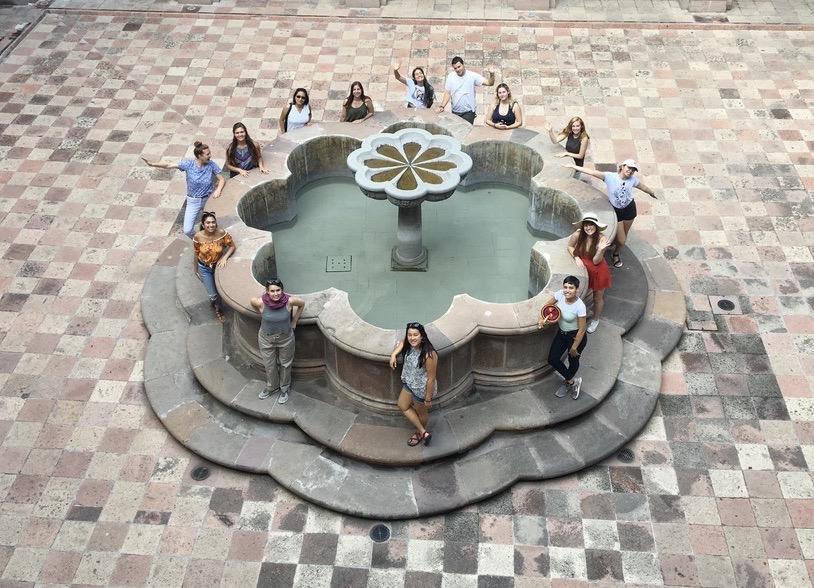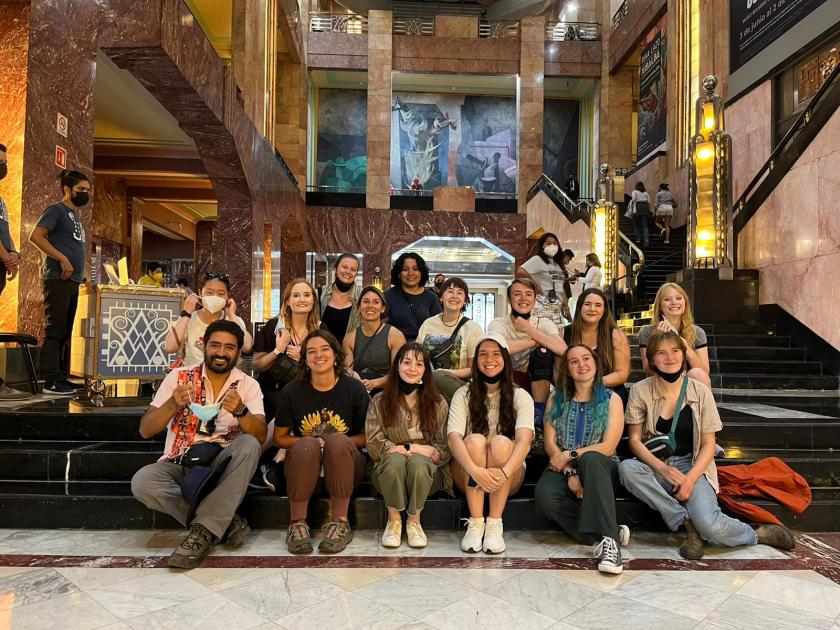Course Details
Syllabus
Program dates
-
Travel dates
-
Course credits
SPAN 301, SPAN 302, SPAN 332
Total credits: 15
Prerequisites
SPAN 203
The historic center of the town, declared a World Heritage Site by UNESCO, does not fail to captivate visitors with its baroque art and architecture, intriguing underground tunnels, and beautiful parks and plazas.
Living and taking classes in Guanajuato is expected to be a complete full immersion in Spanish language and Mexican culture. Host families serve as a unique and valuable introduction into Mexican culture and values. Therefore, our students will be living with local families, generally, within the historic center of the city.
Students will take language classes in the mornings (Span 301, 302 Grammar Review and Composition) and a cultural class in the afternoons (Span 332 Culture of Latin America, with emphasis in Mexican culture and history). In addition, students will take lessons in dance, art, food, music and alebrijes with five Mexican instructors (these classes are part of the Span 332 curriculum). The weekends will be spent with the Mexican families and doing field trips.
Program Highlights
Image

- Pre-Travel Course Work with two WWU faculty members before the travel.
- City orientation in Guanajuato.
- Welcome and Farewell Group Dinner with all our Mexican instructors and host families.
- Full cultural and language immersion living with a Mexican family.
- Spanish classes with two WWU faculty members.
- Lesson in Latin American dance, music, ceramics, urban sketching, and cartonería with six Mexican instructors, all supplies for the classes.
- Exploration of several museums and historical places in Guanajuato.
- Visiting the Museum of Anthropology in Mexico City, the largest and most visited museum of Mexico.
- Visiting the Museum of Frida Khalo “La casa azul,” in Mexico City.
- Climbing pyramids and understanding concept of space in the ancient city of Teotihuacan.
- Appreciation of colonial architecture and baroque art in Querétaro city, and San Miguel de Allende city.
- Several opportunities to do volunteer work in Guanajuato.
Image

Expectations of Participants
With or without reasonable accommodations, students must be able to walk for three hours and sit for four hours. Activities include visits to several museums and cultural sites in Guanajuato, Mexico City, Querétaro, and San Miguel de Allende. The orientation day we will walk for almost 3 hours in a warm or maybe rainy weather, and we will climb stairs (Guanajuato has several alleys and stairs). During the field trips the students are expected to walk for long periods of time.
If some students have medication that needs to be refrigerated, our host families will be able to accommodate this need. During the field trips electricity, water, and medical attention can be found.
Students must work with the WWU Disability Access Center, Wilson Library 170, (360) 650-3083, drs@wwu.edu. For service eligibility, a complete diagnostic description from a qualified professional is required. Specific accommodations or services are determined on an individual basis and are modified to meet the unique needs of the student and their academic experience. Accommodation policies and procedures are highly individualized and centered on self-advocacy, realistic self-appraisal, and student growth. Each quarter, students need to activate their approved accommodations for each class. Students choose which of their approved accommodations they want to activate for each class.
We strongly recommend that all students traveling on this Global Learning Program are fully vaccinated against COVID-19 to maximize the safety of the student cohort. Staying up to date with COVID-19 vaccines remains the most important step to protect yourself and your community.
Participants are expected to abide by all attendance policies of the program, including those for classes and excursions, and to adhere to the program schedule. Since the programs are academic in nature, parents, friends, partners, and families are not permitted on any part of the Global Learning Program. Personal travel must be outside of the course dates and not conflict with coursework or excursion schedules. Travel plans should be vetted by faculty beforehand to ensure personal plans do not interfere with meeting the learning objectives of the course.
